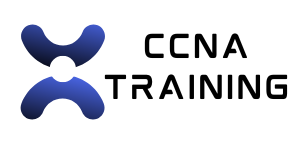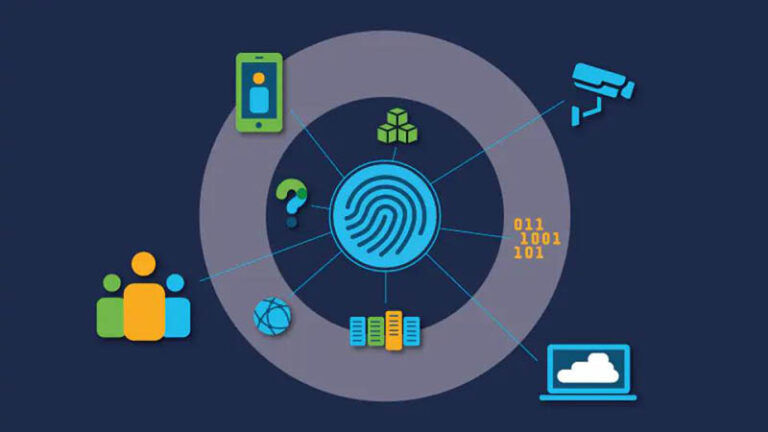CCNA IT Certification, which stands for Cisco Certified Network Associate, is a widely recognized certification in the field of information technology. It is offered by Cisco Systems, a leading company in networking and communication technology. The CCNA certification is designed to validate the skills and knowledge of IT professionals in various networking concepts, including routing and switching, network security, wireless networking, and more. It is an entry-level certification that demonstrates an individual’s ability to install, configure, operate, and troubleshoot small to medium-sized networks.
The CCNA certification is highly regarded in the IT industry and is considered a valuable asset for professionals looking to advance their careers in networking. It is a globally recognized certification that opens up numerous opportunities for individuals seeking to establish themselves as competent and skilled networking professionals. The certification is not only beneficial for individuals looking to enhance their knowledge and skills but also for employers who are seeking qualified professionals to manage their network infrastructure.
Key Takeaways
- CCNA IT Certification is a professional certification for IT professionals that validates their ability to install, configure, operate, and troubleshoot medium-sized routed and switched networks.
- The benefits of CCNA IT Certification include increased job opportunities, higher earning potential, and enhanced credibility in the IT industry.
- Career opportunities with CCNA IT Certification include network administrator, network engineer, and IT manager positions.
- To obtain CCNA IT Certification, individuals must pass the CCNA exam, which covers a wide range of networking topics.
- The salary potential with CCNA IT Certification is competitive, with average salaries ranging from ,000 to ,000 per year.
- Industries that value CCNA IT Certification include telecommunications, finance, healthcare, and government sectors.
- Tips for success in pursuing CCNA IT Certification include studying diligently, gaining hands-on experience, and staying updated with the latest networking technologies.
Benefits of CCNA IT Certification
There are numerous benefits to obtaining a CCNA IT Certification. Firstly, it provides individuals with a solid foundation in networking concepts and technologies, which is essential for anyone looking to pursue a career in IT. The certification covers a wide range of topics, including network fundamentals, LAN switching technologies, routing technologies, infrastructure services, and infrastructure maintenance. This comprehensive coverage ensures that individuals have a thorough understanding of networking principles and are well-equipped to handle various networking tasks and challenges.
Secondly, the CCNA certification enhances an individual’s credibility and marketability in the job market. Employers value the CCNA certification as it demonstrates an individual’s commitment to professional development and their ability to perform effectively in a networking role. It also serves as a benchmark for employers to assess the skills and expertise of potential candidates, making certified professionals more attractive to hiring managers.
Additionally, the CCNA certification opens up opportunities for career advancement and higher earning potential. Certified professionals are often considered for more senior roles and responsibilities within their organizations, leading to increased job satisfaction and better career prospects. Furthermore, the certification provides individuals with the opportunity to specialize in specific areas of networking, such as security or wireless technology, further enhancing their expertise and market value.
Career Opportunities with CCNA IT Certification
The CCNA IT Certification opens up a wide range of career opportunities for individuals in the field of information technology. With this certification, individuals can pursue roles such as network administrator, network engineer, systems administrator, and technical support specialist. These roles involve designing, implementing, and managing network infrastructure, ensuring the smooth operation of an organization’s communication systems.
Furthermore, certified professionals can also explore opportunities in network security, where they can work as security analysts or security engineers, responsible for protecting an organization’s network from cyber threats and attacks. The CCNA certification provides a strong foundation in network security principles, making certified professionals well-equipped to handle security-related tasks and challenges.
Moreover, individuals with a CCNA certification can also pursue roles in wireless networking, where they can work as wireless network engineers or wireless support specialists. These roles involve designing and implementing wireless networks, ensuring seamless connectivity and communication for users within an organization.
Overall, the CCNA certification equips individuals with the skills and knowledge required to excel in various networking roles, providing them with a diverse range of career opportunities in the IT industry.
How to Obtain CCNA IT Certification
| Steps to Obtain CCNA IT Certification | Details |
|---|---|
| 1. Study | Prepare for the CCNA exam by studying networking concepts, protocols, and configurations. |
| 2. Practice | Gain hands-on experience by practicing with networking equipment and simulation tools. |
| 3. Take the Exam | Schedule and take the CCNA exam at an authorized testing center. |
| 4. Pass the Exam | Achieve a passing score on the CCNA exam to obtain the certification. |
| 5. Renewal | Keep the certification current by renewing it every three years through continuing education or re-taking the exam. |
Obtaining a CCNA IT Certification involves several steps that individuals need to follow to successfully achieve the certification. Firstly, individuals need to prepare for the certification exam by studying the relevant networking concepts and technologies covered in the CCNA curriculum. There are various resources available for exam preparation, including study guides, practice tests, and online training courses.
Once individuals feel confident in their knowledge and understanding of the CCNA topics, they can register for the certification exam through Cisco’s official website or an authorized testing center. The exam consists of multiple-choice questions and simulations that assess an individual’s ability to apply their knowledge in real-world networking scenarios.
After successfully passing the exam, individuals will receive their CCNA certification from Cisco Systems, validating their skills and expertise in networking. It is important to note that the CCNA certification is valid for three years, after which individuals need to recertify by either passing the current CCNA exam or advancing to a higher-level certification.
Salary Potential with CCNA IT Certification
The CCNA IT Certification can significantly impact an individual’s earning potential in the field of information technology. Certified professionals often command higher salaries compared to their non-certified counterparts due to their specialized skills and expertise in networking. According to PayScale, the average salary for a CCNA-certified professional is around $78,000 per year in the United States.
Furthermore, individuals with a CCNA certification can expect to earn even higher salaries as they gain more experience and expertise in the field. With additional certifications or specializations in areas such as network security or wireless networking, certified professionals can further increase their earning potential and pursue more lucrative career opportunities.
Moreover, the demand for networking professionals with CCNA certification continues to grow as organizations increasingly rely on robust and secure network infrastructure to support their operations. This high demand for skilled networking professionals further contributes to the competitive salaries offered to CCNA-certified individuals.
Overall, the CCNA certification not only provides individuals with valuable skills and knowledge but also offers them the opportunity to secure well-paying jobs in the IT industry.
Industries that Value CCNA IT Certification

The CCNA IT Certification is highly valued across various industries that rely on robust network infrastructure to support their operations. Industries such as telecommunications, finance, healthcare, education, government, and manufacturing all place significant importance on network reliability and security, making the skills and expertise gained through the CCNA certification highly sought after.
In the telecommunications industry, for example, certified professionals are responsible for designing and maintaining complex network systems that facilitate communication services for millions of users. Similarly, in the finance industry, where data security is paramount, certified professionals play a crucial role in ensuring the integrity and confidentiality of sensitive financial information through secure network infrastructure.
Furthermore, the healthcare industry relies on efficient network systems to support electronic health records (EHR) and telemedicine services, making certified professionals instrumental in maintaining reliable and secure networks that support critical healthcare operations.
Additionally, government agencies and educational institutions also value the CCNA certification as they require robust network infrastructure to support their administrative functions and educational services. The manufacturing industry also relies on network connectivity for automation and production control systems, making certified professionals essential for maintaining smooth operations.
Overall, the CCNA certification is highly regarded across a wide range of industries that depend on secure and reliable network infrastructure to support their day-to-day operations.
Tips for Success in Pursuing CCNA IT Certification
Successfully obtaining a CCNA IT Certification requires dedication, hard work, and effective study strategies. Here are some tips for individuals looking to pursue the certification:
1. Study diligently: Take the time to thoroughly understand the networking concepts covered in the CCNA curriculum. Utilize study guides, practice tests, and online resources to reinforce your understanding of key topics.
2. Hands-on practice: Gain practical experience by setting up a home lab or using simulation tools to practice configuring routers, switches, and other networking devices. Hands-on experience is crucial for mastering networking concepts.
3. Join study groups: Connect with other individuals pursuing the CCNA certification to share knowledge, study together, and support each other through the exam preparation process.
4. Stay updated: Keep abreast of any changes or updates to the CCNA curriculum or exam format to ensure that your study materials are current and relevant.
5. Take practice exams: Familiarize yourself with the exam format by taking practice tests to gauge your readiness and identify areas that require further study.
6. Time management: Develop a study schedule that allows you to cover all the necessary topics while balancing other commitments. Effective time management is key to successful exam preparation.
7. Seek mentorship: If possible, seek guidance from experienced networking professionals who have already obtained their CCNA certification. Their insights and advice can be invaluable in your preparation journey.
By following these tips and staying committed to your exam preparation, you can increase your chances of successfully obtaining your CCNA IT Certification and unlocking numerous career opportunities in the field of information technology.
FAQs
What is CCNA IT certification?
CCNA (Cisco Certified Network Associate) is a popular IT certification offered by Cisco Systems. It validates the ability to install, configure, operate, and troubleshoot medium-size routed and switched networks.
What are the benefits of obtaining a CCNA certification?
Obtaining a CCNA certification can lead to increased job opportunities, higher salary potential, and recognition as a skilled networking professional. It also provides a solid foundation for further Cisco certifications.
What are the prerequisites for taking the CCNA exam?
There are no formal prerequisites for taking the CCNA exam, but it is recommended to have a good understanding of networking fundamentals and some experience working with Cisco networking devices.
What topics are covered in the CCNA exam?
The CCNA exam covers a wide range of networking topics including network fundamentals, network access, IP connectivity, IP services, security fundamentals, and automation and programmability.
How can I prepare for the CCNA exam?
There are various study resources available for preparing for the CCNA exam, including official Cisco training courses, study guides, practice exams, and online training videos. It is also recommended to gain hands-on experience with Cisco networking devices.
















